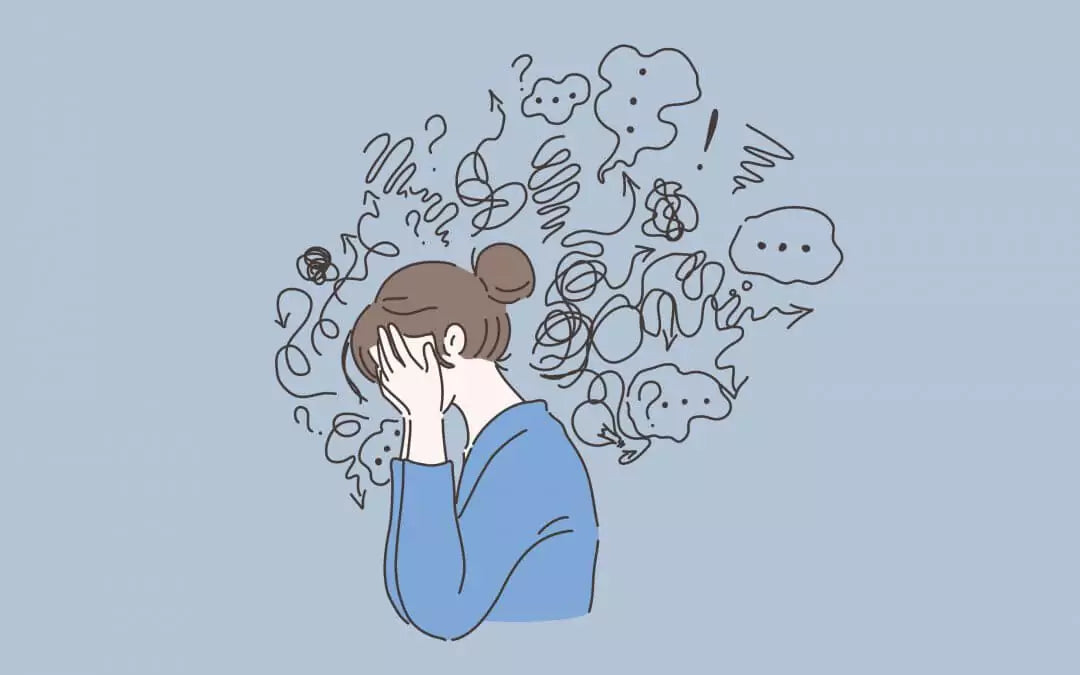
Understanding Anxiety: Causes, Symptoms, and Proven Ways to Manage It
Share
What is Anxiety?
Anxiety is a natural human response to stress. It’s the feeling of worry, nervousness, or fear about future events or uncertain outcomes. Everyone experiences anxiety occasionally, but when it becomes persistent or overwhelming, it can develop into an anxiety disorder—affecting your daily life and wellbeing.
There are several types of anxiety disorders, including:
-
Generalized Anxiety Disorder (GAD): Excessive, uncontrollable worry about everyday things.
-
Social Anxiety Disorder: Intense fear of social situations or being judged by others.
-
Panic Disorder: Sudden and repeated panic attacks with physical symptoms like chest pain and rapid heartbeat.
-
Phobias: Irrational fears of specific objects or situations.
-
Post-Traumatic Stress Disorder (PTSD): Anxiety following a traumatic event.
What Causes Anxiety?
Anxiety is often caused by a combination of factors that can vary from person to person:
-
Genetics: A family history of anxiety or other mental health disorders increases risk.
-
Brain Chemistry: Imbalances in neurotransmitters like serotonin and dopamine can affect mood and anxiety levels.
-
Environmental Stressors: Stressful events, trauma, or childhood abuse may trigger anxiety.
-
Medical Conditions: Thyroid issues, heart arrhythmias, and chronic illnesses can cause or worsen anxiety symptoms.
-
Lifestyle Factors: Poor sleep quality, excessive caffeine consumption, lack of exercise, and substance use contribute to anxiety.
Recognizing Anxiety Symptoms
Anxiety affects the mind and body. Common symptoms include:
Physical Symptoms
-
Increased heart rate or palpitations
-
Sweating
-
Trembling or shaking
-
Shortness of breath or hyperventilation
-
Muscle tension or headaches
-
Dizziness or lightheadedness
Emotional Symptoms
-
Persistent worry or fear
-
Feeling restless or on edge
-
Difficulty concentrating
-
Irritability or mood swings
Behavioral Symptoms
-
Avoiding anxiety-inducing situations
-
Compulsive behaviors or rituals
-
Withdrawal from social activities
How to Manage Anxiety Effectively
Managing anxiety often requires a comprehensive approach combining professional treatment and lifestyle changes.
1. Cognitive Behavioral Therapy (CBT)
CBT is a highly effective therapy that helps you identify and challenge negative thought patterns that fuel anxiety. It teaches coping skills and problem-solving strategies to reduce worry and improve emotional regulation.
Learn more: Anxiety and Depression Association of America
2. Medication
For moderate to severe anxiety, doctors may prescribe medications such as SSRIs (Selective Serotonin Reuptake Inhibitors) or benzodiazepines. Always consult a healthcare professional before starting any medication.
3. Mindfulness and Meditation
Mindfulness practices help calm the mind by focusing on the present moment. Regular meditation reduces stress hormones and improves emotional resilience.
Try starting with 10 minutes a day using apps like Headspace or Calm.
4. Lifestyle Adjustments
-
Exercise: Regular physical activity releases endorphins that boost mood and reduce anxiety.
-
Sleep: Prioritize 7-9 hours of quality sleep per night to help regulate stress hormones.
-
Diet: A balanced diet rich in omega-3 fatty acids, magnesium, and antioxidants supports brain health.
-
Limit stimulants: Reduce caffeine and avoid excessive alcohol or nicotine, which can worsen anxiety.
5. Weighted hoodies/blankets
Weighted hoodies and blankets use gentle, evenly distributed pressure known as Deep Pressure Stimulation (DPS) to help calm the nervous system. This sensation mimics a comforting hug, which can reduce feelings of anxiety and promote relaxation.
Research shows that deep pressure therapy helps increase serotonin and dopamine levels—neurotransmitters associated with mood regulation—while lowering cortisol, the stress hormone. Using weighted hoodies or blankets during stressful moments or before sleep can improve your sense of calm and overall well-being.
Frequently Asked Questions (FAQ)
Q: Is anxiety the same as stress?
A: Anxiety and stress are related but different. Stress is a response to external pressures, while anxiety is more about internal worries and fears that may persist without a clear cause.
Q: Can anxiety be cured?
A: While anxiety may not always be “cured,” it can be effectively managed with therapy, medication, and lifestyle changes, allowing many people to live healthy, fulfilling lives.
Q: When should I see a doctor for anxiety?
A: If anxiety interferes with your daily life, causes distress, or leads to panic attacks, it’s important to seek professional help.
Conclusion
Anxiety is a common but manageable condition. Understanding its causes and symptoms is the first step toward finding relief. By combining professional treatment like CBT or medication with lifestyle changes such as mindfulness, exercise, and social support, you can regain control and improve your quality of life.
If anxiety is impacting your daily routine, reach out to a healthcare provider for guidance. Remember, you are not alone—and effective help is available.
